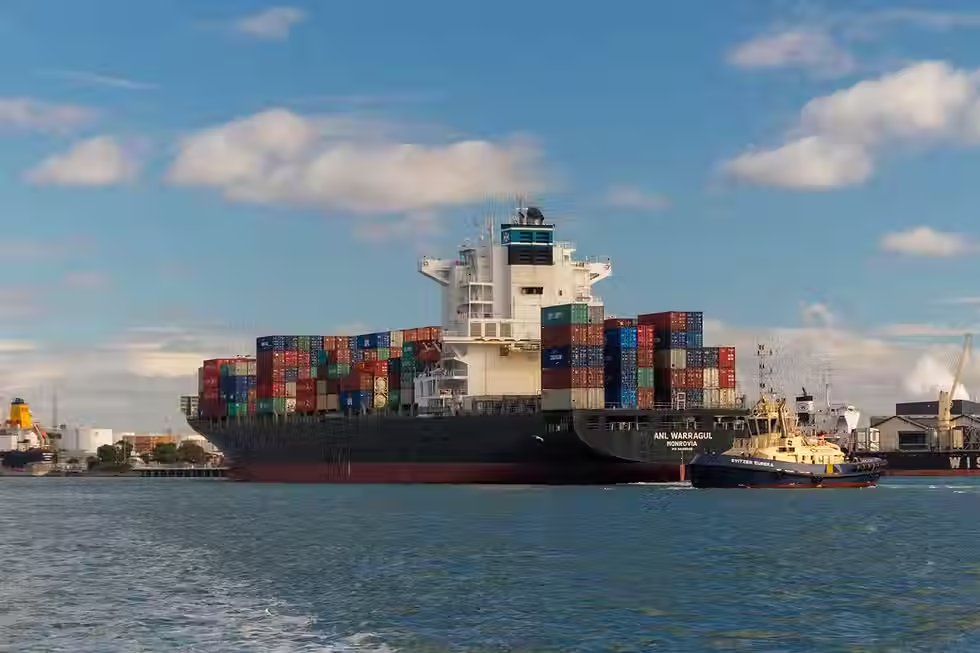Why U.S. Tariffs Are Reshaping Customs Clearance in Singapore
- Adverdize SEO
- Jun 11, 2025
- 4 min read
Updated: Jul 23, 2025

With U.S. tariffs recently rippling across global trade, some answers increasingly affect logistics and regulation beyond the United States. In Southeast Asia, for importers, shippers, and exporters, particularly those dealing in customs clearance in Singapore, these shifts are not just them taking the headlines at face value. They’re real, physical obstacles that require attention, flexibility and precise documentation.
Let’s walk through how these shifts shape the customs landscape and what it means for businesses in Singapore.
Understanding the Tariff Ripple Effect
U.S. tariffs change the value of goods and often cause shipments to be reclassified under alternative Harmonised System (HS) codes. If those codes change, the clearance process becomes more complicated, especially for heavily regulated or scrutinised goods.
We’ve seen a noticeable uptick in required documents needing clarification or resubmission before releasing the goods. Even shipments once considered non-controlled and non-dutiable now require a deeper review, especially if linked to re-export routes involving the U.S.
The Role of Documentation and Delays

To comply with customs clearance requirements, importers must ensure all supporting documents, such as the invoice, commercial invoice, packing list, and permit with invoices, are in order. Missing even one item can lead to costly delays.
Key documents include:
Customs permit and customs documents
Cargo documents required for containerised shipments
A valid description of the goods
A clearly presented permit application
These are especially vital at checkpoints like Changi and Tuas, where officers at the entry points may inspect goods or request additional verification before allowing clearance.
Clearance Complexities for International Shipments
For international shipments, U.S. tariffs may trigger unexpected duties at either point of entry or re-export. The result? This scenario necessitates a more dynamic management of shipment declarations and updated invoice values.
In Singapore, customs regulations are responsive but strict. For instance:
Partial clearance is not allowed for containerised cargo.
Customs declarations must match the customs duties paid.
Freight and cargo values must align with the duty and tax expectations.
We often encounter situations where the goods are subject to newly imposed tariffs, which means the shipment has to be reassessed before we can proceed to facilitate the cargo clearance.
How We Navigate These Challenges
As a declaring agent, we at Declaration Nexus understand that the evolving customs
clearance Singapore landscape calls for responsiveness and reliability. We’ve worked with clients to submit the correct customs permit and supporting documents, recalibrate shipment data to match revised tariff rules, and speed up the process through proper alignment with the customs office.
We aim to maintain a smooth customs experience by ensuring every client has the proper documentation, from export clearance to the correct HS code. This approach enables us to assist clients in staying ahead.
Bottlenecks and Border Realities
Singapore's logistics hubs are tightly monitored. Checkpoint officers at the entry—whether in seaports or air freight terminals—check if the documents for the checkpoint officers are complete. If not, you're in for a delay. This is especially true when goods pass through U.S.-linked routes and attract attention from US Customs and Border Protection.
Common issues include:
Goods flagged for customs brokerage support
Improperly filled customs broker documentation
Errors in the payment of duties or customs duties
That’s why we always ensure each importer or shipper we support gets precise compliance help without second-guessing the regulations.
Customs Clearance Services & Process Adaptation
Recently, we at Declaration Nexus have had to adapt rapidly. We’ve seen how U.S. policy shifts influence even basic declarations for international trade, especially where import or export activities intersect with free trade zone privileges.
We guide clients through:
The customs clearance process
Adjusting to updated tariff exposure
Matching all required for clearance fields correctly
Our proactive systems ensure that documents like a copy of the customs permit, supporting documents, and declarations are ready, so you don’t have to worry about your goods being held at the border.
Produced for Customs Clearance: What’s Needed?
Most importers don’t realise that goods must be produced for customs, even in transit zones. At every stage, authorities may request to present the goods or confirm their code or CA product code, primarily if the goods are controlled.
To handle these requirements, you need:
Accurate endorsement at a free trade hub
Properly declared containerised cargo
Clear alignment between your permit presented and the invoice details
These aren't just red tape—they’re required steps to avoid having your customs clearance services halted midway.
Supporting Documents & The Bigger Picture
Ultimately, the success of your customs clearance in Singapore depends on the credibility of your documentation and the clarity of your declarations. A simple misstep in your customs clearance documents required—be it a late invoice or missing customs authorities approval—can derail even the most well-planned shipment.
That’s why we not only provide support—we also anticipate needs. At Declaration Nexus, we take pride in offering insight-driven support that doesn't just react but prepares.
Final Thoughts
In a world where tariffs, trade wars, and evolving regulatory frameworks constantly shift, businesses must stay ready. Whether it's managing cargo clearance, meeting customs clearance requirements, or aligning with customs regulations, your ability to comply smoothly is what keeps goods moving.
Singapore remains a global logistics leader, but with external pressures like U.S. tariffs, success now hinges on working with informed partners—those who understand the stakes and simplify the system.
In Declaration Nexus, we make sure your goods don't just go through—it clears with confidence.




